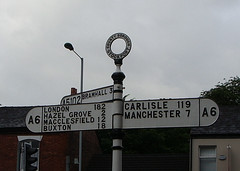Warning: Undefined array key "adf" in /home4/hpvcxhmy/public_html/wp-content/plugins/similarity/similarity.php on line 69
Warning: Undefined array key "sim_pages" in /home4/hpvcxhmy/public_html/wp-content/plugins/similarity/similarity.php on line 70
I would bet that almost all the people who have read The Fourth Turning have wondered at one time or another whether 9/11 was our nation’s crisis as predicted in that book. I know that I read somewhere that the authors of the book indicated that they believed that 9/11 was the crisis that marked our passage into the fourth, or crisis, turning for this saeculum (for those who have not read the book and may be unfamiliar with that term, a saeculum is composed of four time periods, called turnings, which each have distinct characteristics and last for the length of a generation – roughly 18 to 25 years – and the saeculum is equal to a long human lifespan – between 80 and 100 years).
I have long felt that if 9/11 was our crisis then we failed because nothing changed – we have not addressed any of the issues that have been pushing us toward crisis over the last generation. Today I stumbled upon 9/11 – A Fourth Turning Perspective by James Quinn. He does a great job of identifying the things that made me think that 9/11, if it was our crisis, was a failed crisis. As he talks about the book he mentioned that a fourth turning crisis ALWAYS leads to substantial change. That gave me hope (and dread) that our crisis had not come. Certainly 9/11 had the potential to be such a crisis, but apparently we were not ready to enter the next turning at that time.
Mr. Quinn goes on to speculate that our crisis was really the market crash of September 2008 and that our reaction to that crisis is not yet resolved. We have not come to a point where the outcome of our crisis can be known. In fact, the crash might even be viewed as the catalyst for a coming crisis rather than the crisis itself. Quinn goes on to describe the types of crises we might yet face in the near future (and keep in mind that there is no guarantee that we will face only one crisis) and some of the potential outcomes.
I won’t pretend to be smart enough to be able to say with certainty how accurate his speculation is, but it is certainly worth a read and some careful consideration.



